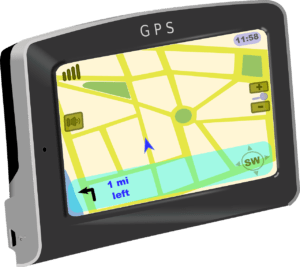Ministry doesn’t come with a GPS—there is no mechanism that will give us step-by-step directions to a known destination. Instead, we find our way by thought, deliberation, hope, and faith. Sometimes we make decisions, sometimes decisions seem to be made for us. Sometimes we are led by our head, sometimes by our heart—or by some mysterious combination of reason, intuition and prayer. Sometimes we sketch out plans, sometimes we discover plans along the way.
David Whyte expressed this well in Crossing the Unknown Sea: “A life’s work is not a series of stepping-stones onto which we calmly place our feet, but more like an ocean crossing where there is no path, only a heading, a direction, which, of itself, is in conversation with the elements.”
When we are attentive, mid-career can be a time for us to deepen the “conversation with the elements” of ministry. I don’t define mid-career by a range of years, but by the experience in our ministry that we are still “in the middle of something.” We have significant years behind us, we may have some number of years in front of us, and we are not yet in a “culminating chapter” (as we are when we approach retirement). In mid-career, we still have time to make some crucial decisions and make some course corrections. In mid-career, we have time to claim our pastoral identity and shed the thoughts, beliefs, and practices that block our progress.
Pausing at Mid-Career
[box]This May 1-3, 2017 I will again be offering a retreat, Spiritual and Leadership Renewal for Mid-Career Clergy at Pendle Hill Retreat in Conference Center, near Philadelphia. Maybe you or a colleague you know may be interested in this opportunity. The retreat is purposely limited to up to 20 people. There are a few pre-assignments, so please register by April 15th, if you can. Click here to learn more and register.[/box]
Sometimes we can hardly avoid this conversation in ourselves. Even when our ministry is going well and is fulfilling, we still can wonder—alone or with cherished colleagues:
- What has my ministry been like till now?
- In what ways does my current ministry feel vital?
- What ways does my current ministry feel draining?
- What wants to happen in my ministry and life moving forward?
- Is there more to what I want to do with my life -work than ministry?
- What feels left undone in my own calling?
- How can I sustain and be sustained by my ministry moving forward?
Reflecting on these questions is only the beginning. The insights that we gain from such reflection can then lead us into an intentional re-examining of possibilities for what’s next. This re-examining leads some to return with fervor to the ministry they were already engaged in. Others make a course correction—even a U-turn—toward values and convictions left behind amid the day-to-day of ministry.
From Reflecting to Recomposing
Each of us feels, as we move through stages of ministry, the need to claim or to recover our wholeheartedness. We recognize those times most easily when we are exhausted or feel out of sync with our original call to ministry. But even when things outwardly are going well, we may become aware of a desire to build on our accomplishments, but not know quite exactly what that might mean.
In times of relative certainty—and also of uncertainty—we hear a haunting, inner GPS-voice saying, as some actual GPS devices do, “Recalculating.” A time apart, either alone or with other colleagues, can help us to reflect in a disciplined and structured way on question that arise at mid-career. At the same time, we can consider future possibilities and plot out our next chapters. A call to ministry requires a faithful response—not just once, but at every major stage of our careers.
Given the complexity of the world and congregations there can be no published road map for the territory of ministry in our time. We must engage more deeply in the re-authoring of our ministries. It may be that we have no other choice.
[box]Lawrence Peers partners with religious organizations and leaders across many faith traditions to help them lead from a sense of purpose and innovate by aligning strategy and spirit. He draws from a rich array of methodologies as he facilitates whole systems, participatory strategic planning, staff team coaching, clergy coaching, and retreats. Larry joins the Congregational Consulting Group and some of his former consultant colleagues from the Alban Institute after four years of being a director of the Pastoral Excellence Network.[/box]

